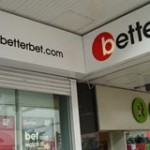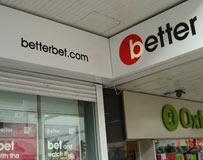
Paddy Power’s recent announcement that it had teamed up with PMU, the French Tote, to provide risk management and pricing services to PMU’s new online betting service, is the latest indication of how Paddy Power is becoming a force to be reckoned within the world of online bookmaking.
It is also one of many examples of how internet betting companies can specialise in a continually evolving market. Online betting is an industry that is still doing very well despite the recession, but if online is the way forward for the upwardly mobile sports betting operator, what future remains for the high street bookmaker? Is it destined to go the way of the butcher, the travel agent and the knocking shop (sorry, sauna and massage emporium)?
In May, Paddy Power paid €32.8m for 51 per cent of Australian online bookmaker Sportsbet. The following month, Sportsbet paid about €17.8m for 80 per cent of another Aussie online bookie, IAS, to bring Paddy Power’s total Australian investment up to €41.9m.
The Irish bookmaker’s online operations generated almost two-thirds of first-half operating profits (pre-interest) this year, so with the industry coming under increasing pressure from online betting exchanges, where the only cost to customers is an average 3% deduction from winnings, surely the high street bookie’s number is up?
Apparently not. For while online bookmakers have had to adapt to fierce competition by introducing innovative betting products such as the in-running football betting markets exemplified by Bet365, or the generous each-way odds typified by Boylesports, who went ¼ odds on the top seven finishers at the Open this year, the high street equivalent has taken an entrely different route in its evolutionary cycle.
Salvation has come in the form of the Fixed Odds Betting Terminals. Before the appearance of the first FOBT in the UK, the casino was the only place to go for a game of blackjack or roulette. Now, though, you can win up to £500 at the spin of a wheel down your local Ladbrokes, Hills or Corals.
In fact, such has been the impact of the FOBT that some bookmakers have dispensed with their online presence entirely. Betterbet, for example, decided to go completely offline in 2007 and now estimate that 45% revenue is generated by their FOBTs.
“It takes an enormous investment to enter the online arena,” explains BetterBet’s Managing Director Ian Hogg. “Building volume and marketing the brand requires several million pounds, which at present we don’t have.
“Our focus is on servicing customers who are local to our shops and building our customer base organically. Once we have achieved a solid base we can then build further from there. So the FOBTs are very important to us, which is probably why the government have introduced the crippling FOBT tax.
Hogg admits that running a high street bookmaker is becoming increasingly difficult. Operating costs, including new taxes and electricity rate hikes require each outlet to make “£1,000 a week more than three years ago” which is why the chain has decided to merge with JenningsBet; a union that will see the new bookmaker double in size to an 80-shop operation and help reduce overheads.
However, Hogg is quick to point out that the online market is not a threat to his business.
“Our customers are a different animal to online. Some would maybe rather watch the football and see the regulars down the shop than stay at home. It’s a bit like going down the pub. It’s a social experience too and when we branded Better we thought hard about how we wanted to position ourselves and we were very conscious of creating a nice environment.”
Another crucial factor is keeping the high street bookie alive: cool, hard, cash. “The day punters can bet online using cash will be the day betting shops are blown out of the water,” says Jim Cremin, business editor of the Racing Post. “Cash betting is still king because there is no audit trail. Punters love the privacy of being able to bet anonymously. There is no profit and loss statement from your high street bookie, you can bet without the wife finding out and you don’t get into credit card trouble. I can’t see it changing in the next 10 years.”
Speak for yourself, Jim. Apart from this man, who carries wads of cash around with them nowadays? Who wants to leave the comfort of their own home and the myriad odds to choose from in cyberspace and, finally, who let’s their Missus see what they’re doing online? (Note to self: don’t forget to delete browser history before I log off).






